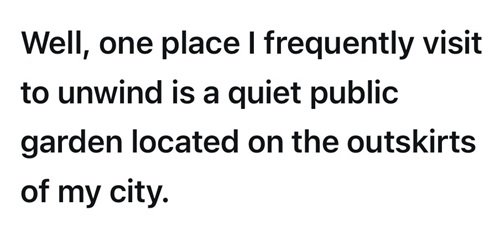We’ve reached 150 lessons!🎉 This week’s topic is very central to the base theme of this entire website: learning English!
Step 1: Tune in to this week’s podcast episode (audio and video version available below).
| Part 3 Questions Do you think the way people learn English today is the same as in the past? Is it easy for children to learn new languages? Is it easier for children to learn languages than adults? What is the importance of language in a culture? Can people understand a culture without learning its language? Is it important to protect small language groups? |
| 🧑🎓Target language: in my own case -a phrase used to cue a personal example “For example, in my own case, I found certain English pronunciation patterns challenging because these sounds do not exist in my language!” |
Step 2: Listen to the sample a few times to get more familiar with the language.
Step 3: Engage this week’s full speech shadowing lesson.
Step 4: Below is Monday’s speech exercise. Post yourself saying this excerpt to your Whatsapp group. Exercises for Tuesday to Friday will be posted in the group by your instructor.
| Post yourself saying this into your Whatsapp group!🗣️📲 “No, the approach to learning English has evolved significantly. With technology and globalisation, access to diverse resources like online courses has enhanced the learning process. Learners are no longer constrained to classrooms. There are now dynamic approaches that allow people to train from anywhere in the world and in a variety of settings.” |
Step 5: It’s very important that you note any new language items or pronunciation points from this week’s lesson in your journal to help you chronicle your improvement.📝
Transcript
We have been talking about languages and I would like to ask you a few more questions about this topic. Do you think the way people learn English today is the same as in the past?
No, the approach to learning English has evolved significantly. With technology and globalisation, access to diverse resources like online courses has enhanced the learning process. Learners are no longer constrained to classrooms. There are now dynamic approaches that allow people to train from anywhere in the world and in a variety of settings.
Is it easy for children to learn new languages?
Yes, children have a natural aptitude for language acquisition due to their adaptable brains and exposure to language-rich environments. Also, unlike adults, I think children are less inhibited by the fear of making mistakes, and this allows them to experiment with language freely.
Is it easier for children to learn languages than adults?
Generally, yes. As I mentioned, a child’s lack of inhibitions allows for easier experimentation with grammar, vocabulary and pronunciation, and this willingness to experiment encourages them to learn. Children have also not developed fluency in any language, so they have no preprogrammed speaking patterns that are working against them. For example, in my own case, I found certain English pronunciation patterns challenging because these sounds do not exist in my language!
What is the importance of language in a culture?
Language is integral to culture. It serves as a means of communication, expression and identity. Language also reflects the evolution of a society, and by this I mean it captures the collective wisdom and values of the people that speak it. Some sayings in one language may be completely nonsensical in another, and I feel this is clear evidence of how central language is to culture.
Can people understand a culture without learning its language?
I don’t think people can gain a deep understanding, no. While some insights can be learned through secondary sources, a deep understanding of a culture requires knowing the language. Language is an expression of the values of a culture, and it shows how the people of that culture solve problems and think about the world. So I guess that is to say that any quote unquote ‘understanding’ someone claims to have about a culture is very surface-level if they don’t know anything about the language.
Is it important to protect small language groups?
Absolutely. Small language groups represent linguistic diversity and cultural heritage. They embody unique ways of perceiving the world. Efforts to protect and revitalise endangered languages are crucial to preserving cultural identity and honouring the contributions of every culture to human civilization.
Thank you.


